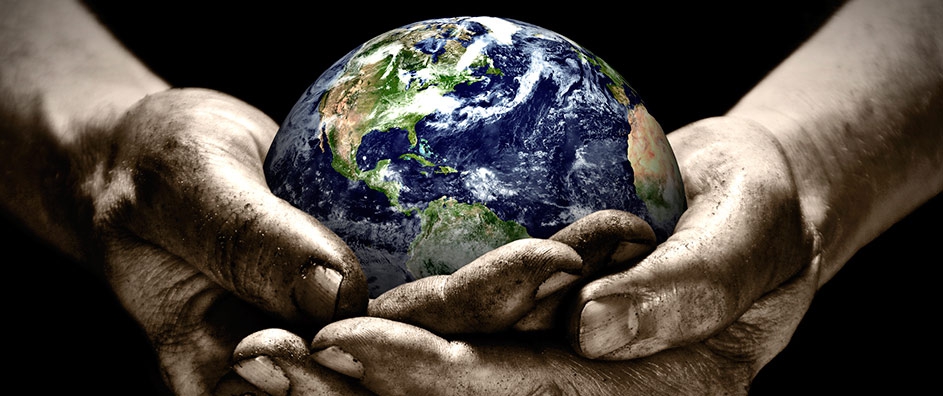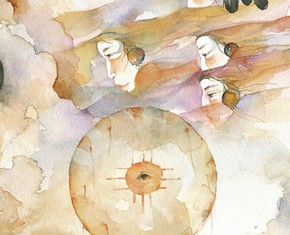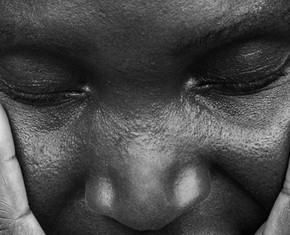The views expressed in our content reflect individual perspectives and do not represent the authoritative views of the Baha'i Faith.
In the 19th Century, Baha’u’llah—a prisoner in an obscure outpost of the Ottoman Empire—audaciously wrote to the world’s foremost political and religious leaders, offering them what he called “The Most Great Peace.” He wrote:
O kings of the earth! We see you increasing every year your expenditures, and laying the burden thereof on your subjects. This, verily, is wholly and grossly unjust. – Tablet to Queen Victoria, Summons of the Lord of Hosts, p. 93.
Long before the United Nations, or even the League of Nations, Baha’u’llah summoned the leaders to meet, settle their differences, and reduce their armaments.
They ignored him and the wars continued.
Then in the 20th Century, Baha’u’llah’s son, Abdu’l-Baha, predicted that by the end of that century, what his father called the “Lesser Peace” would come about. This preliminary political peace would stop major wars, but still lack a deep moral and spiritual foundation.
This prediction may initially seem to have been utterly amiss, but appearances can be deceiving.
In my book ELEVEN, I make the case that peace has, to a large extent, been achieved–and this achievement makes disarmament a realistic option. The trillions now spent every year on the military can now be rededicated to rehabilitating the fortunes of humankind and restoring the ecosphere.
I know–with the actions of ISIS and Boko Haram, the continuous interventions of the West in the Muslim world, and the rise of terrorism, the world looks anything but peaceful at this point. So why the optimism? I back it up from several perspectives, but one of the most convincing comes from a remarkable study by the Harvard psychologist Steven Pinker.

Boko Haram Soldiers
In his book The Better Angels of Our Nature: Why Violence Has Declined, Pinker traces a steady historical decrease in violence and the emergence, in the early 21st century, of the most peaceful period in human history.
Pinker discusses several vast processes that resulted in reductions of violence. The first is the pacification process, which has seen a steady reduction of violent deaths. Forensic archeology has been used to estimate the percentage of deaths due to violent trauma in prehistoric societies. By examining skeletal remains, scientists estimate that violent deaths ranged as high as 60 percent of all deaths, with the average over many studies a little over 15 percent. For the 20th century, wrongly considered the most violent ever, the violent death rate was 3 percent. In the first decade of the 21st century, it declined to 0.03 percent.
Pinker attributes the decline in violent deaths to the rise and expansion of state power. Think pax Romana, pax Hispanica, pax Islamica: a state or empire imposes hegemony over a territory and tries to stamp out tribal raiding and feuding, a nuisance to imperial overlords because it undermines their tax base and disrupts commerce. Hardly altruistic, but it worked.
Pinker next describes a civilizing process that helped reduce violence. Official homicide statistics date back to 1200 CE in some parts of Europe. The average homicide rate for Europe was close to 100/100,000 per year in 1000 CE. It is now 1/100,000.
Why the reduction? Again, it results in large part from the consolidation of centralized state power throughout Europe, including judicial systems. The rule of law and the King’s justice replaced warlording, feuding, and brigandage.
Simultaneously, a growing infrastructure of commerce, the development of the institutions of money and finance, and of transportation technologies all emerged simultaneously. That shifted the incentive structure from zero-sum plunder to positive-sum trade. In other words, commerce and exchange trumped fighting.
Steady downward trends in violence and upward trends in human respect have yielded what Pinker calls The Long Peace, the period since the end of the Second World War. The idea that the 20th Century was the most violent ever is simply wrong, says Pinker. While the first half was violent, the second was progressively less so, resulting in an overall historical low in violence.
The 20th century’s population explosion played a role: war deaths may have been high, but as a percentage of total deaths they actually dropped in the 20th Century compared to previous periods.
Before 1945, an average of two new European wars occurred per year for 600 years. The percentage of time that the great powers were at war with each other after 1945 declined, eventually to zero. In fact, colonial wars have disappeared altogether and, as I report in my book, interstate wars have also dwindled to zero. Civil wars and “internationalized intrastate wars”, the most common types of wars today, increased until 1990, but have since decreased.
If the world has indeed become as peaceful as Pinker suggests, it begs the question: Why do we have a sense that war and violent crime are on the increase? There are several likely reasons.
First, violence of any kind seems much more abhorrent, especially as it becomes more rare inside our circle of experience. Second, we have much more exposure to incidences of violence due to media coverage. As actual incidence of violence goes down, our alarm about the incidents that still occur goes up.
To put it another way, the brighter the light, the deeper the shadows.
On top of that, as peace takes hold a powerful military-industrial complex has a vested interest in fostering a sense of insecurity. Limited threats are amplified, as new pseudo-enemies are created and old ones reemerge.
Despite the impression we get from media, we now live in the most peaceful era in human history.
As this new reality dawns on us—and as we confront monumental problems such as climate change and resource scarcity—creating a “peace dividend” will become a necessity. We will have little choice but to rededicate the trillions now spent needlessly on armaments to addressing the key social and ecological issues of an 11 billion world.
















Comments
Sign in or create an account
Continue with Googleor